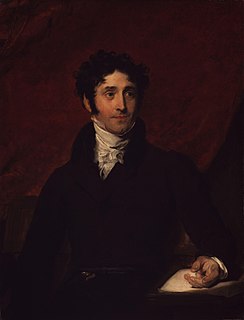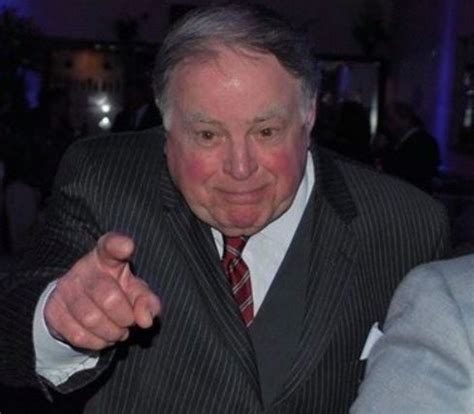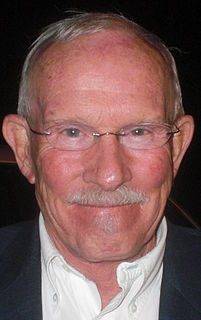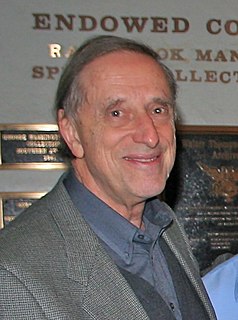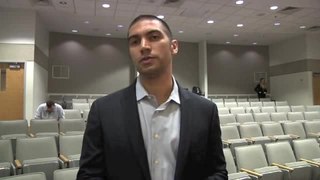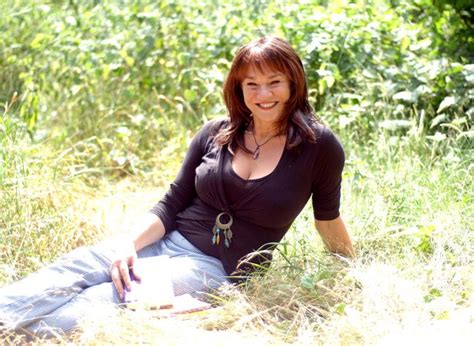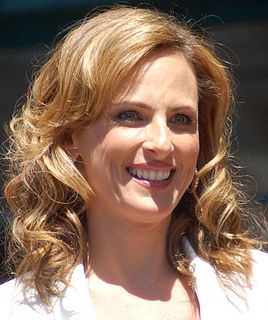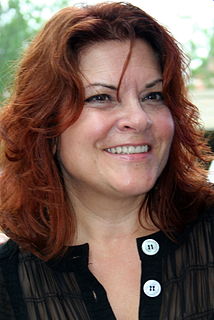Top 1200 Language Skills Quotes & Sayings - Page 19
Explore popular Language Skills quotes.
Last updated on November 29, 2024.
Freedom is the thing that has attracted me most to jazz. Within improvisation, you're really able to express something that maybe I'm not so adept at expressing via language. So I develop a language through the instrument to tell stories. So it's kind of this freedom of thought and freedom of expression that kind happens.
Exactness is first obtained, and afterwards elegance. But diction, merely vocal, is always in its childhood. As no man leaves his eloquence behind him, the new generations have all to learn. There may possibly be books without a polished language, but there can be no polished language without books.
I love making object form; I wish I was doing more of it. I admire the research of my colleagues, and sometimes it makes me sad when their beautiful work - the deep dives into formal research and nuances of geometry and so on - ends up circling in more and more circumscribed contexts. I wish they were more powerful. It's not a modern proposition. Active form doesn't kill object form. I want my students to have all those skills related to geometry, shape, measure, scale, etc., plus skills for using space to manipulate power in the world.
I tell ya, if I hadn't chosen the career of being a performer, I think linguistics would have been a natural area that I'd have loved - to teach it, probably, Language has always fascinated me. There's a genetic inheritance there a good language gene, which I inherited [from my mother and grandfather] and she fostered that in me as he fostered that in her.
Yiddish, originally, in Eastern Europe was considered the language of children, of the illiterate, of women. And 500 years later, by the 19th century, by the 18th century, writers realized that, in order to communicate with the masses, they could no longer write in Hebrew. They needed to write in Yiddish, the language of the population.
Dr. Adler had instructed me to always say whatever I was thinking, but this was difficult for me, for the act of thinking and the act of articulating those thoughts were not synchronous to me, or even necessarily consecutive. I knew that I thought and spoke in the same language and that theoretically there should be no reason why I could not express my thoughts as they occurred or soon thereafter, but the language in which I thought and the language in which I spoke, though both English, often seemed divided by a gap that could not be simultaneously, or even retrospectively, bridged.
The Victorian language of flowers began with the publication of 'Le Language des Fleurs,' written by Charlotte de Latour and printed in Paris in 1819. To create the book - which was a list of flowers and their meanings - de Latour gathered references to flower symbolism throughout poetry, ancient mythology, and even medicine.
I was a regular kind of academic music student. I was at Juilliard. I had to study all the contemporary music of the time, and changing that language very radically was just a sign or a signal that I was going to try to do something very different. I find that that's what I feel closest to. I found no real inner response in me in a non-tonal language.
For me writing is an organic process that starts with engaging the language and then thinking about the structure of the novel as you move along. Especially in revision you start to notice correlations. Things come up, not self-consciously, because you're busy feeling your way through sentences and trying to push the language into new places.
The being level speaks the language of art, music, color shape and pattern directly -- a language that requires no words -- is not limited by words -- nor does it have the specificity of words and thus cannot be broken onto parts that can be manipulated or analyzed by the intellect. It must be swallowed, whole not parsed, sorted and justified.
Machines have given us a new ability to count and make our understanding quantitative. The Web connects news gatherers with audiences in ways that were never possible before and can bring a breadth of intelligence, and experiences to understanding the news we never had. And professional reporters and editors still have a unique role to play in triangulating those inputs as well as bringing three other distinct skills - access to interrogate people in power, exceptional storytelling skills, and a discipline of open minded, skeptical inquiry - which are not as likely to be found elsewhere.
An American customer can book in English all over the world, but also, somebody from Japan or China can book in their own language everywhere. We translate all of our content into these languages, and that's quite unique. We service our direct customers - the innkeepers - as well in their own language.
After studying the Hungarian language for years, I can confidently conclude that had Hungarian been my mother tongue, it would have been more precious. Simply because through this extraordinary, ancient and powerful language it is possible to precisely describe the tiniest differences and the most secretive tremors of emotions.
The idea of critical windows extends beyond just vision, of course: almost every system in the brain has a critical window when it needs to experience certain stimuli, or it won't get wired up properly. The most obvious example is language: if you don't learn a language early on, it's nigh impossible to become truly fluent.
If you track something like a political campaign and parcel out what's being communicated in a literal and narrative sense, and what's being communicated by means of emotional and symbolic language, you might find that it's the latter elements that absolutely dominate and move people. It makes me want to take that language and expose it.
There are many deaf people who couldn't imagine living in a marriage without someone who doesn't speak their language. For me, I believe that hearing or deaf is fine as long as both parties are willing to communicate in each other's language. But if there's no communication, then the marriage, I believe, will be difficult if not doomed.
When Nigeria actually gave me the call-up I thought 'oh, it's going to be a challenge, I don't go back there a lot, I don't really speak the language.' I wasn't speaking the language as fluently as I am now, so it was always going to be a challenge, but it was a challenge I decided to take and change nationalities.
Man feels the urge to run up against the limits of language. Think for example of the astonishment that anything at all exists. This astonishment cannot be expressed in the form of a question, and there is also no answer whatsoever. Anything we might say is a priori bound to be nonsense. Nevertheless we do run up against the limits of language. Kierkegaard too saw that there is this running up against something, and he referred to it in a fairly similar way (as running up against paradox). This running up against the limits of language is ethics.
It's up to the artist to use language that can be understood, not hide it in some private code. Most of these jokers don't even want to use language you and I know or can learn . . . they would rather sneer at us and be smug, because we 'fail' to see what they are driving at. If indeed they are driving at anything--obscurity is usually the refuge of incompetence.
I love the best of all the traditions. My discipline is the take-no-prisoners language of good poetry, but a language that actually frees us from prejudice, no matter what religion or political persuasion they are. I try to create a river-like discourse. The river is not political, it's not on your side or against you. It's an invitation into the onward flow.
When people talk to me about the digital divide, I think of it not so much about who has access to what technology as about who knows how to create and express themselves in the new language of the screen. If students aren't taught the language of sound and images, shouldn't they be considered as illiterate as if they left college without being able to read and write?
The full meaning of a language is never translatable into another. We may speak several languages but one of them always remains the one in which we live. In order completely to assimilate a language it would be necessary to make the world which it expresses one's own and one never does belong to two worlds at once.
I have stolen more quotes and thoughts and purely elegant little starbursts of writing from the Book of Revelation than anything else in the English language - and it is not because I am a biblical scholar, or because of any religious faith, but because I love the wild power of the language and the purity of the madness that governs it and makes it music.
Originally when we talked about language disorder it was a catastrophic language disorder. It's substantial, and from a treatment standpoint it's okay to keep diluting that term, but from a research standpoint we need to be much more precise. I wish somebody would take up the mantle of just that particular task.
It's always seemed to me that black people's grace has been with what they do with language. In Lorrain, Ohio, when I was a child, I went to school with and heard the stories of Mexicans, Italians, and Greeks, and I listened. I remember their language, and a lot of it is marvelous. But when I think of things my mother or father or aunts used to say, it seems the most absolutely striking thing in the world.
And the betrayers of language ...... n and the press gang And those who had lied for hire; The perverts, the perverters of language, the perverts, who have set money-lust Before the pleasures of the senses; howling, as of a hen-yard in a printing-house, the clatter of presses, the blowing of dry dust and stray paper, foetor, sweat, the stench of stale oranges.
We're trying to be very careful and precise in our use of language, because I think the language we use and the images we project really do have resonance. It's the reason why I don't use the term jihadist to refer to terrorists. It gives them the religious legitimacy they so desperately seek, but I ain't gonna give it to them.




















